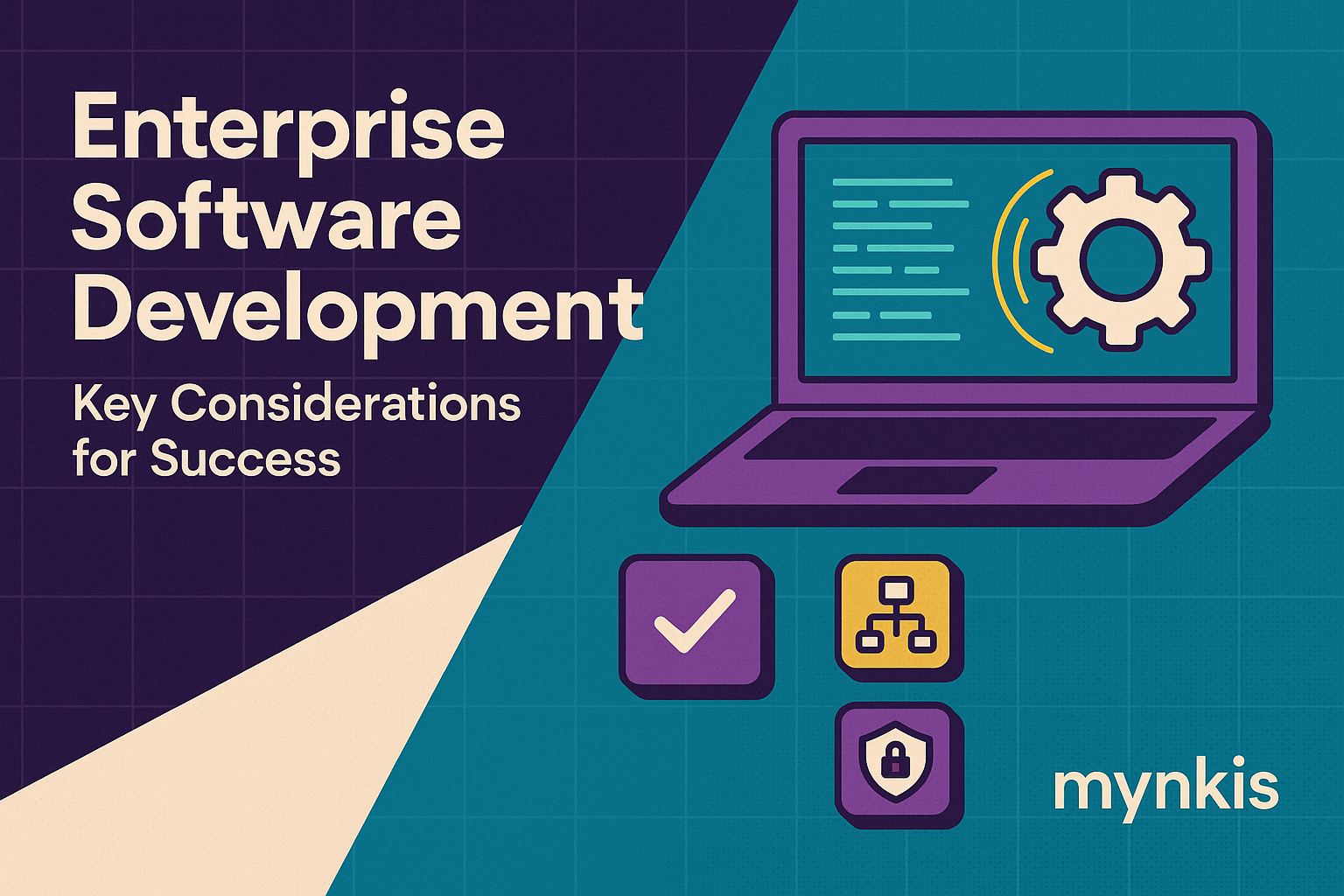Schedule a Demo
In my work with operations managers across various industries, I've seen firsthand how crucial enterprise software development can be for scaling operations and optimizing workflows. The process isn't just about coding or design; it's about aligning technology with your strategic business objectives. Let's dive into the key considerations you need to keep in mind when venturing into enterprise software development.
Before any line of code is written, you need a crystal-clear understanding of what you're aiming to achieve. Are you looking to streamline operations, enhance customer engagement, or integrate disparate systems? From what I've observed, businesses that clearly define their goals from the outset are much more likely to realize the full potential of their enterprise software.
Your enterprise software must not only meet current needs but also be scalable enough to handle future growth. Based on my experience, I recommend a modular approach to software design. This not only allows for easier updates and expansions but also enables your system to adapt to emerging technologies and business models.
No matter how powerful or feature-rich your software is, if it's not user-friendly, it won't be adopted. A compelling user experience (UX) is critical. As Satya Nadella of Microsoft puts it, "Our industry does not respect tradition - it only respects innovation." Ensuring that your software is intuitive and efficient can significantly boost employee productivity and satisfaction.
In today's world, data breaches can be catastrophic. Your enterprise software development must prioritize robust security measures and compliance with regulations such as GDPR or HIPAA, depending on your industry. A recent study by IBM revealed that the average cost of a data breach in the US is around $9.44 million. It's not just about protecting your business but also about maintaining the trust of your clients and users.
Enterprise software rarely operates in isolation. It's vital to consider how your new system will integrate with existing software and databases. Seamless integration can enhance overall system performance and reduce operational headaches. I've seen businesses struggle when their new software can't talk to the old system.
Selecting the right development team can make or break your project. Look for partners with a track record in custom software development and a deep understanding of your industry. They should not only be able to bring your vision to life but also offer insights that enhance the project's success.
Enterprise software development can be a significant investment. It's crucial to budget not just for the initial development but also for ongoing maintenance and updates. From my observations, businesses that allocate sufficient resources from the start tend to see better long-term ROI.
Incorporating agile development practices can significantly improve the development process. This methodology emphasizes flexibility, continuous improvement, and frequent stakeholder feedback. Based on available research, businesses that adopt agile methodologies tend to bring products to market faster and with higher customer satisfaction.
Don't skimp on testing. Rigorous quality assurance is essential to ensure your software works as intended across different scenarios and user types. Over the years, I've seen many businesses overlook this aspect, only to face costly rework later. Robust testing from the early stages can mitigate these risks.
Once your software is developed, you need to ensure your team can use it effectively. Comprehensive training programs and reliable support systems are key. Drawing from my experience, companies that invest in ongoing education and support see much higher adoption rates and overall satisfaction with their new systems.
Finally, the journey doesn't end at deployment. Continuous monitoring and analytics are vital to understand how your software is performing and where it can be improved. As noted by McKinsey, businesses that leverage data-driven insights can achieve a five to six percent increase in productivity.
Enterprise software development is a complex but immensely rewarding endeavor. By carefully considering these key factors, you set your business up for success in an increasingly digital world. The right approach to enterprise web solutions can transform your operations, improve customer satisfaction, and drive sustained growth.
